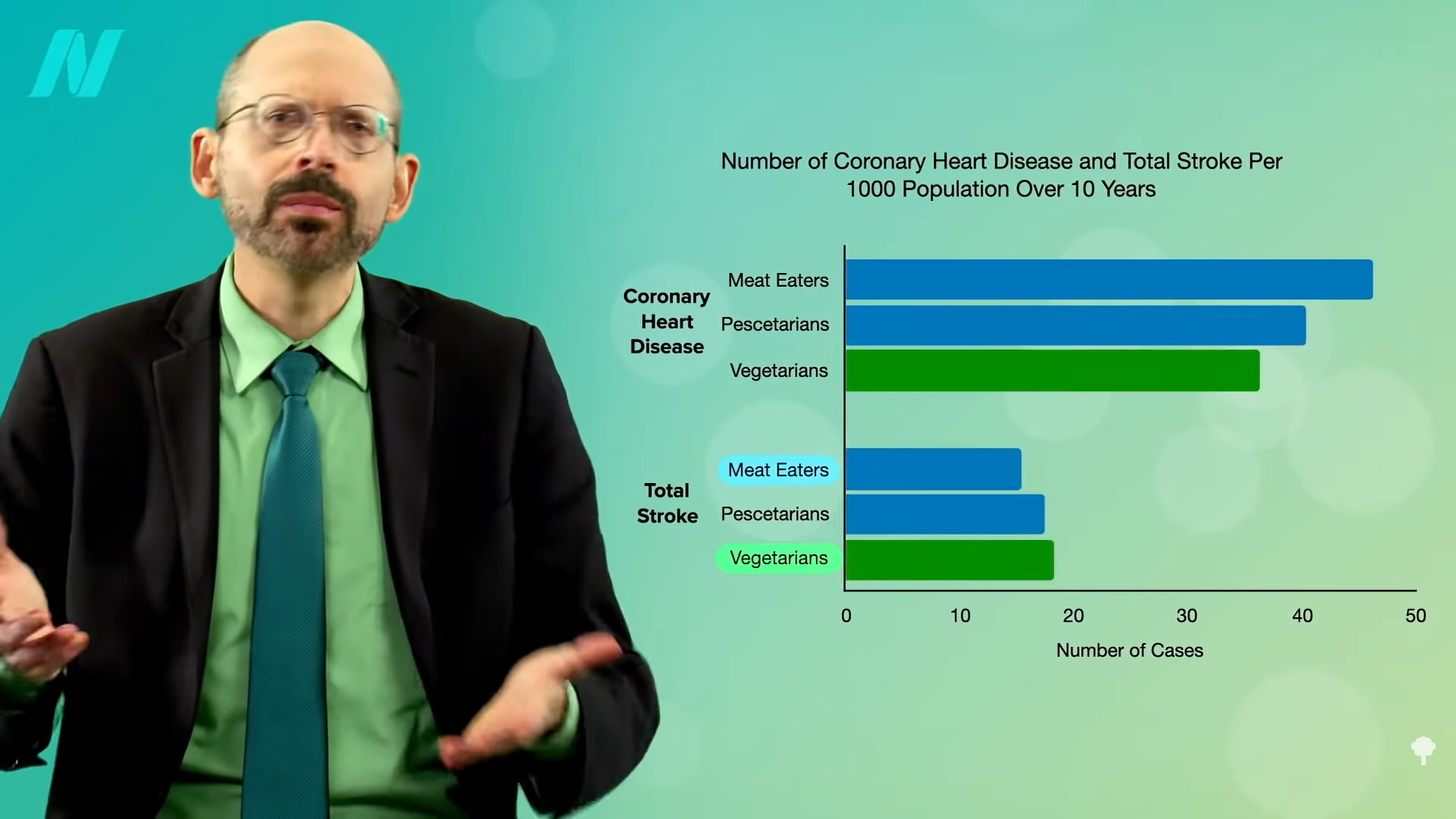Could the consumption of animal protein lead to an increase in the cancer-promoting growth hormone IGF-1 and potentially impact brain artery integrity? This intriguing question has stirred up discussions in the realm of stroke risk and dietary protein intake.
In a study conducted in 2014 on stroke risk and dietary protein, it was discovered that individuals with a higher intake of dietary protein, particularly animal protein, had a lower risk of stroke. This finding sheds light on why recent research has shown that vegetarians, who typically consume less animal protein, exhibited a higher stroke rate compared to meat eaters.

Studies have shown that consumption of animal protein leads to an increase in IGF-1 levels, a growth hormone linked to cancer progression. This hormone has been associated with various cancers such as breast, colorectal, lung, and prostate cancer. Interestingly, IGF-1 receptors are also present on blood vessels, raising the possibility that IGF-1 may impact both cancer development and brain artery integrity.
Research on individuals who have suffered strokes indicates lower blood levels of IGF-1, but whether this is a cause or consequence of strokes remained unclear until a study in 2017. This study revealed a correlation between higher IGF-1 levels and a reduced risk of stroke, suggesting a potential cause and effect relationship. In animal studies, IGF-1 was found to enhance the production of elastin, a protein vital for artery elasticity.

Despite the link between IGF-1 and stroke risk, individuals with conditions like acromegaly, characterized by excessive growth hormone levels, do not exhibit lower stroke rates. Recent studies have failed to establish a clear association between dietary protein intake and stroke risk. In fact, plant protein consumption may even decrease the risk of stroke.
Individuals with high blood pressure and low IGF-1 levels were found to be at a higher risk of atherosclerosis, a condition that thickens artery walls leading to the brain. Maintaining optimal blood pressure levels is crucial for cerebrovascular health, particularly for vegans who naturally have lower IGF-1 levels. A balanced plant-based diet with adequate potassium intake and low salt consumption can contribute to preserving brain artery health.
While low IGF-1 levels are common in vegans and may be linked to reduced stroke risk, the higher stroke rates observed in vegetarians cannot be solely attributed to IGF-1 levels. The mystery surrounding this phenomenon may be better explained by another factor called homocysteine.
For more insights into IGF-1 and its implications, be sure to watch my videos on the topic. Additionally, exploring ways to lower blood pressure beyond dietary choices can aid in promoting overall health and well-being.
Stay tuned for the next installment where we delve deeper into the true underlying factors affecting vegetarians’ stroke risk.












